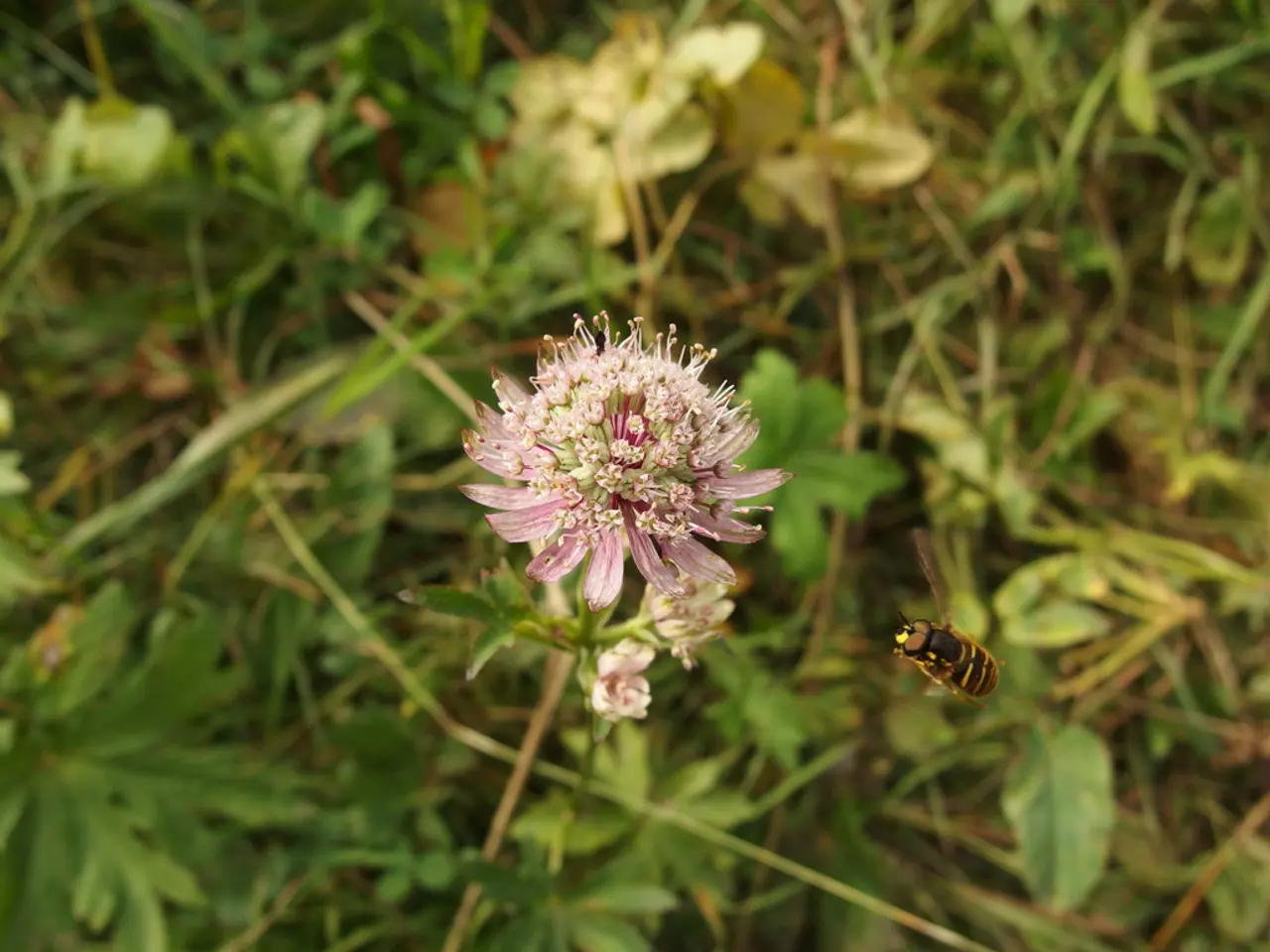Redefining Perceptions: Let's Abolish the Term 'Pest' and Rename Garden Inhabitants with a More Positive Label
In the world of horticulture, award-winning garden designer Cleve West is advocating for a change in mindset. He emphasizes the importance of acknowledging and celebrating the myriad lifeforms that maintain balance in our gardens, and helping them flourish to foster genuine empathy and compassion.
This shift in perspective is supported by the Database of Insects and their Food Plants, a comprehensive resource that lists numerous and mind-blowing interactions between invertebrate herbivores and their host plants. The database, while not entirely accurate, likely represents a minimum estimate of these interactions.
To promote co-existence and respect for wildlife in gardening, alternative terms for "pests" are being proposed. These include "garden critters," "garden visitors," "wildlife," or even "beneficial helpers" depending on their ecological role. This linguistic adjustment acknowledges their place in the ecosystem and reduces the negative framing that can lead to eradication efforts rather than coexistence.
The Royal Horticultural Society (RHS) and other advocacy groups are pushing for the ban of the term "pest" altogether to foster a more respectful view of insects and other creatures in the garden. Recognizing their roles in biodiversity and ecosystem balance, ants and aphids, often labeled pests, have important functions such as soil aeration and natural food webs.
Gardeners focusing on coexistence might refer to these organisms as "garden wildlife" or "garden inhabitants," emphasizing their natural presence. They could also highlight their temporary role in the garden environment by calling them "garden visitors." A neutral, less judgmental term like "garden critters" is also being used. For those performing useful roles, such as ladybugs and lacewings, they are being referred to as "beneficial insects or creatures."
Using these terms helps gardeners frame these organisms more positively and encourages integrated pest management and natural deterrent methods rather than outright elimination. As more gardeners see the value of wildlife, there are still many non-gardeners who look to horticultural websites for guidance on dealing with "nuisances" they encounter, often labeled as 'pests' or 'vermin.'
Horticultural organizations and media have an opportunity, and possibly a responsibility, to educate non-gardeners about the decline of insect populations and its potential impact on the planet. The use of the word 'pest' may reinforce the idea that these organisms need eradicating, and it might be beneficial to consider alternative terms such as 'associates,' 'host for X, Y, and Z,' or simply 'invertebrates.'
You can explore the Database of Insects and their Food Plants at dbif.brc.ac.uk. Embrace a more balanced approach to gardening, and let's work together to foster a healthier and more diverse garden ecosystem.
- Cleve West, an award-winning garden designer, urges gardeners to shift their mindset towards acknowledging and celebrating diverse lifeforms in gardens, with the Database of Insects and their Food Plants serving as a comprehensive resource on insect-plant interactions.
- To promote co-existence and respect for wildlife in gardening, alternative terms for "pests" are being considered, such as "garden critters," "garden visitors," or "beneficial helpers," emphasizing the wildlife's importance in the ecosystem.
- The Royal Horticultural Society (RHS) is advocating for the ban of the term "pest," encouraging a shift towards more respectful views of insects and other creatures in the garden, recognizing their roles in biodiversity and ecosystem balance.
- Embracing a more balanced approach to gardening, advocates suggest using terms like "garden wildlife" or "garden inhabitants," "garden visitors," or "beneficial insects or creatures" to frame organisms positively, leading to integrated pest management and natural deterrent methods.
- As non-gardeners look to horticultural websites for guidance on dealing with organisms labeled as 'pests' or 'vermin', it's crucial that horticultural organizations and media educate the public about the declining insect populations and their potential impact on the planet, considering alternative terms such as 'associates,' 'host for X, Y, and Z,' or simply 'invertebrates.'




